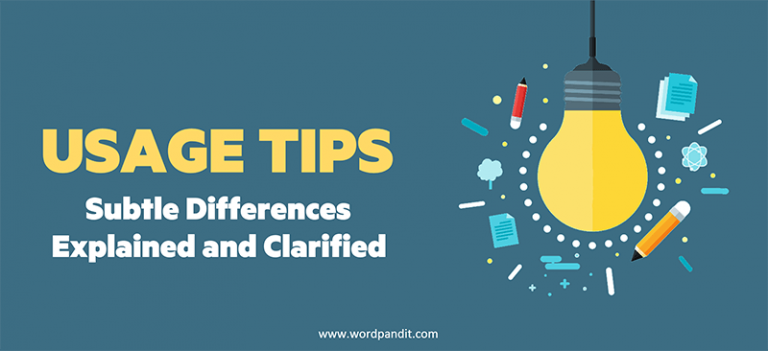Capital vs. Capitol: Understanding the Difference ✨
Have you ever found yourself pausing for a moment when writing capital or capitol? 🤔 You’re not alone. These two words are incredibly similar but carry very different meanings. Knowing when to use each word can make a significant difference in how clearly you communicate. 📢 Let’s dive into the distinctions between them and make sure you never mix them up again. 🔍
What Do They Mean? 📖
- Capital: This word has multiple meanings. Most commonly, it refers to a city that serves as the seat of government, like Washington, D.C., which is the capital of the United States. 🏙️ It can also mean financial assets or money used to start or invest in a business. 💰 Lastly, it can denote something of major importance, as in a “capital idea.” 💡 Whether you’re talking about a central city, essential resources, or something of high importance, capital is your word of choice.
- Pronunciation: KAP-uh-tuhl 🌐
- Etymology: The word comes from the Latin capitalis, meaning “of the head” or “chief.” 👑 This origin is why capital often connotes importance. Historically, it was used to refer to something that is at the top or the head, reflecting its value and significance.
- Example: “The company raised enough capital to launch a new product line.” 💸 Another example: “Paris is the capital of France, known for its culture and history.” 🗼
- Synonyms: money, chief, principal 🤑
- Capitol: This one is more straightforward. It specifically refers to a building where a legislative body meets. 🏛️ In the United States, “Capitol” (note the uppercase ‘C’) refers to the building in Washington, D.C., where Congress convenes. Additionally, many states have their own capitol buildings where state legislatures meet to discuss and pass laws. 📝
- Pronunciation: KAP-ih-tuhl 👌
- Etymology: It comes from the Latin Capitolium, referring to the temple of Jupiter in ancient Rome. The architectural roots are fitting, as it represents a place of governance.
- Example: “The senators gathered at the Capitol for the legislative session.” 🏛️ Another example: “The capitol building is one of the most iconic landmarks in the state capital.” 🌟
- Synonyms: legislative building, parliament house
Capital vs. Capitol: Quick Comparison 📊
A good way to keep these two straight is to remember:
- Capital with an a can mean money or the central city (think of all the assets a capital city has). 💸🏙️
- Capitol with an o refers to the specific legislative building (think of the dome on the building, which is round like the letter o). 🏛️
Example Sentences in Context:
- “The capital city has several beautiful landmarks, including the capitol building where state legislators meet.” 🏙️🏛️
- “Investors provided the necessary capital to renovate the capitol.” 😉💰🏛️
- “The state capital is bustling with activity, and the capitol is a hub of political discussions.” 🌆🏛️
Mnemonic Devices 🧠
One easy way to remember the difference is to focus on the letters:
- The word capitol has an “o,” just like the dome on the building. 🏛️ If you think of a rounded dome, it might help you recall that capitol is about the structure where lawmakers gather.
- Capital contains an “a,” which you can associate with assets or administration. 💸🏙️ This can help you remember its relation to both money and cities.
Related Confusing Word Pairs 🔄
- Principle vs. Principal: Both are pronounced the same way but have different meanings—one is a fundamental truth (principle), and the other is either a school leader or a sum of money (principal). 📚💰
- Affect vs. Effect: These are infamous for causing confusion. Affect is a verb meaning to influence, while effect is a noun that refers to a result. 🌱➡️🌳
- Stationary vs. Stationery: Stationary means not moving, while stationery refers to writing materials like paper and envelopes. ✉️🖊️
- Complement vs. Compliment: Complement means something that completes or goes well with something else, while compliment is a form of praise. 🤝🎉
Wrap-Up 🎁
Now that we’ve explored capital and capitol, it should be easier to spot which one you need in your writing. Remember, capital is all about cities, money, and importance, while capitol is a specific government building. 🏙️💰🏛️ You’ve got this! 💪 Consistent practice and awareness of the context in which these words are used will help you master them effortlessly.
Whenever you find yourself unsure, just take a moment to think: are you talking about governance, assets, or a legislative structure? 🏛️💸 A quick mental check can prevent common mistakes. With these tools in your vocabulary arsenal, you’ll be able to differentiate them confidently. ⚔️✨
Test Your Knowledge: Capital vs. Capitol Quiz 📝🎉
1. “The Governor delivered an important speech at the ___ building.” 🏛️📢
2. “The finance team sought additional ___ for the project.” 💸📊
3. True or False: Capitol refers to a city that serves as a government center. ❌🏙️
4. “The members of Congress were called to the ___ for an emergency meeting.” 🚨🏛️📜
5. “Paris is the ___ of France, known for its rich history and culture.” 🇫🇷🗼📖
6. True or False: Capital can refer to financial assets used in a business. ✅💸📈
7. “The state legislature convened at the ___ to discuss new laws.” 🏛️📜⚖️
8. Identify the synonym for ‘Capital’: 🔄💹
9. Identify the correct word for the definition: “A building where a legislative body meets.” 📖🏛️
10. “The mayor announced a new initiative to attract more ___ to the city.” 💰🏙️🚀













